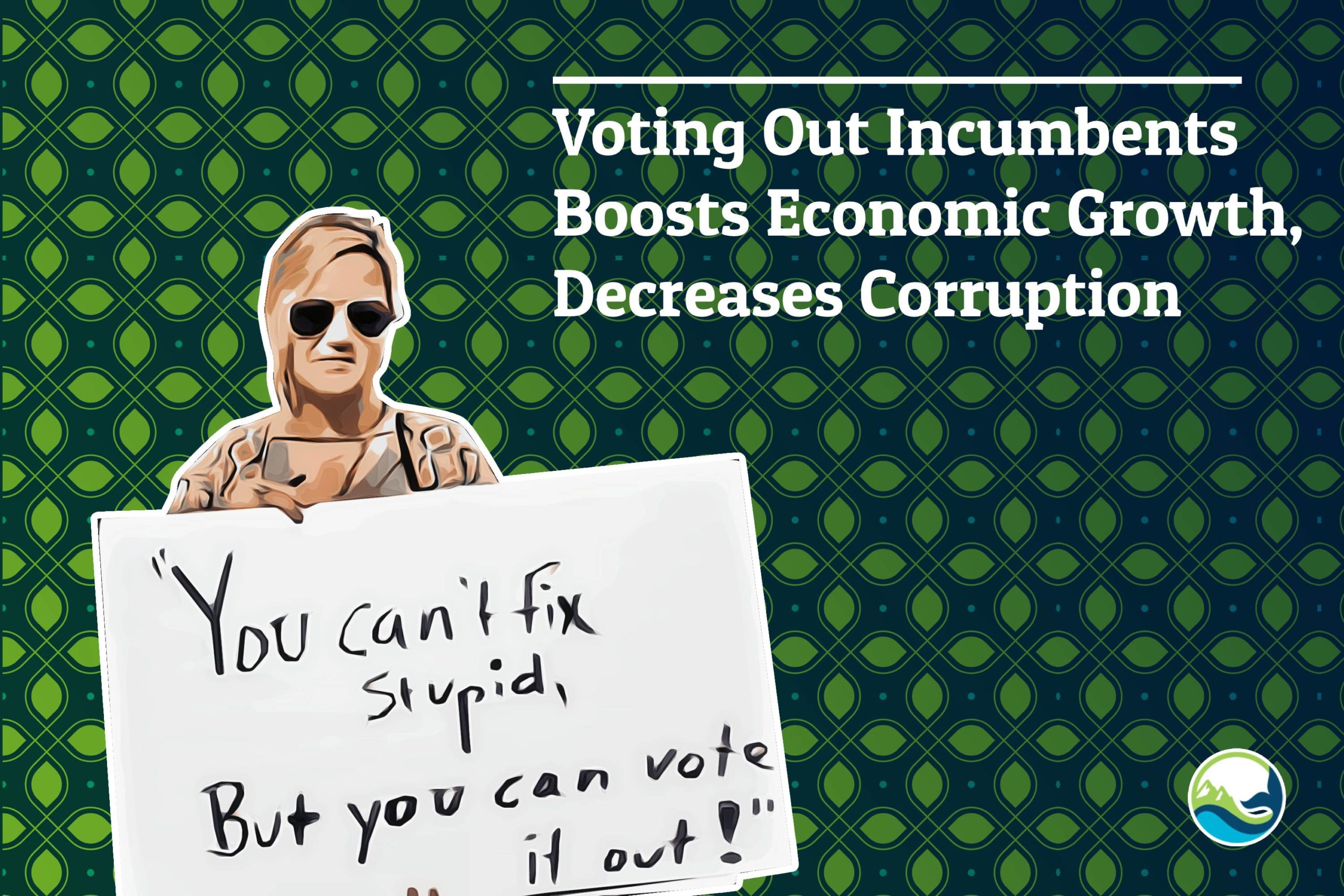
Voting Out Incumbents Boosts Economic Growth, Decreases Corruption
USA, 22 Feb (reason.com)
Throwing the bums out is, for lack of a better word, good.
Electing new political leaders and tossing out incumbents is correlated with improvements in economic growth and social well-being, according to a trio of economists from Harvard, MIT, and the French-based university Sciences Po. After reviewing more than 2,493 national elections since 1945, they found that electoral turnovers—situations in which a ruling party was defeated at the polls—stimulate new policy ideas that translate into more dynamic conditions both within political structures and in the economies subject to regulation by them.
“While other studies have focused on the benefits of democracy, which gives citizens the opportunity to remove incumbents from office, we focus on a different question: what happens when citizens seize this opportunity,” write Benjamin Marx, Vincent Pons, and Vincent Rollet, in the National Bureau of Economic Research paper. “Overall, we find that voting for change matters: electoral turnovers deliver improvements in country-level performance along many dimensions.”
As they point out, this finding is somewhat surprising. A common criticism of democracy is that the will of the people can swing wildly from election to election, potentially undermining the stability that authoritarian regimes (or even more static democracies) can supposedly provide.
But the benefits of having a sort of market within politics outweigh those costs, according to Marx, Pons, and Rollet. This is especially true when it comes to corruption, which is effectively checked by electoral turnovers. “Strikingly, turnovers have a large and robust negative effect on various measures of perceived corruption,” they write, because incumbent politicians “learn over time how to extract rents” as they sit in office.
The three researchers “hypothesize that the main force driving the positive effects of turnovers is the role they play in terms of renewing a country’s political leadership, and in allowing new leaders facing stronger reputation concerns to rise to power.”
Fittingly, the world’s attention is turned toward Russia this week—and there might not be a better example of how a lack of political competition breeds corruption and stifles economic dynamism. But you don’t have to look to Vladimir Putin to understand this phenomenon, because there are plenty of examples closer to home.
From ballot access laws to partisan redistricting, American politics is full of mechanisms that are used by incumbent political powers to make it more difficult for voters to throw them out. Often, these tools are used not to obtain a partisan advantage over the other “team” but in pursuit of preventing political competition from even taking place.
Look at Illinois’ new congressional map, for example. Democrats, who drew the new districts, prioritized the protection of some heavily Republican districts—effectively abandoning any attempt at winning them—in order to eliminate swingier districts and consolidate their own majority in the state’s congressional delegation. The net result is that fewer districts are likely to be contested in future elections, and therefore, electoral turnovers are unlikely.
Illinois is hardly the only state where lawmakers engage in this cynical game. The number of contested congressional districts is on the decline across the country. Regardless of what this might mean for the Team Red vs. Team Blue debate in Washington, D.C., and on cable news, there’s no doubt that one of the most serious effects is to entrench incumbency.
The same thing is happening at the state level, where 20 states have been fully controlled by one party for at least the past 10 years. Five of them have been under unified Republican control since before 2000.
Whether you’re looking at Russia, Illinois, or Texas, decreased political competition seems to mean that counterproductive policies are more likely to go unchallenged, while factions within majority parties become more important than the general consensus of the electorate.
Thankfully, the democratic societies around the world are getting more dynamic despite attempts by ruling parties to entrench incumbent control. Marx, Pons, and Rollet find that the frequency of turnovers at the national level has increased sharply since the early 1990s and averages 40 percent in recent years.
Democracy generally works, when it is allowed to. The problem, of course, is that throwing some bums out usually means having to put others in charge.



